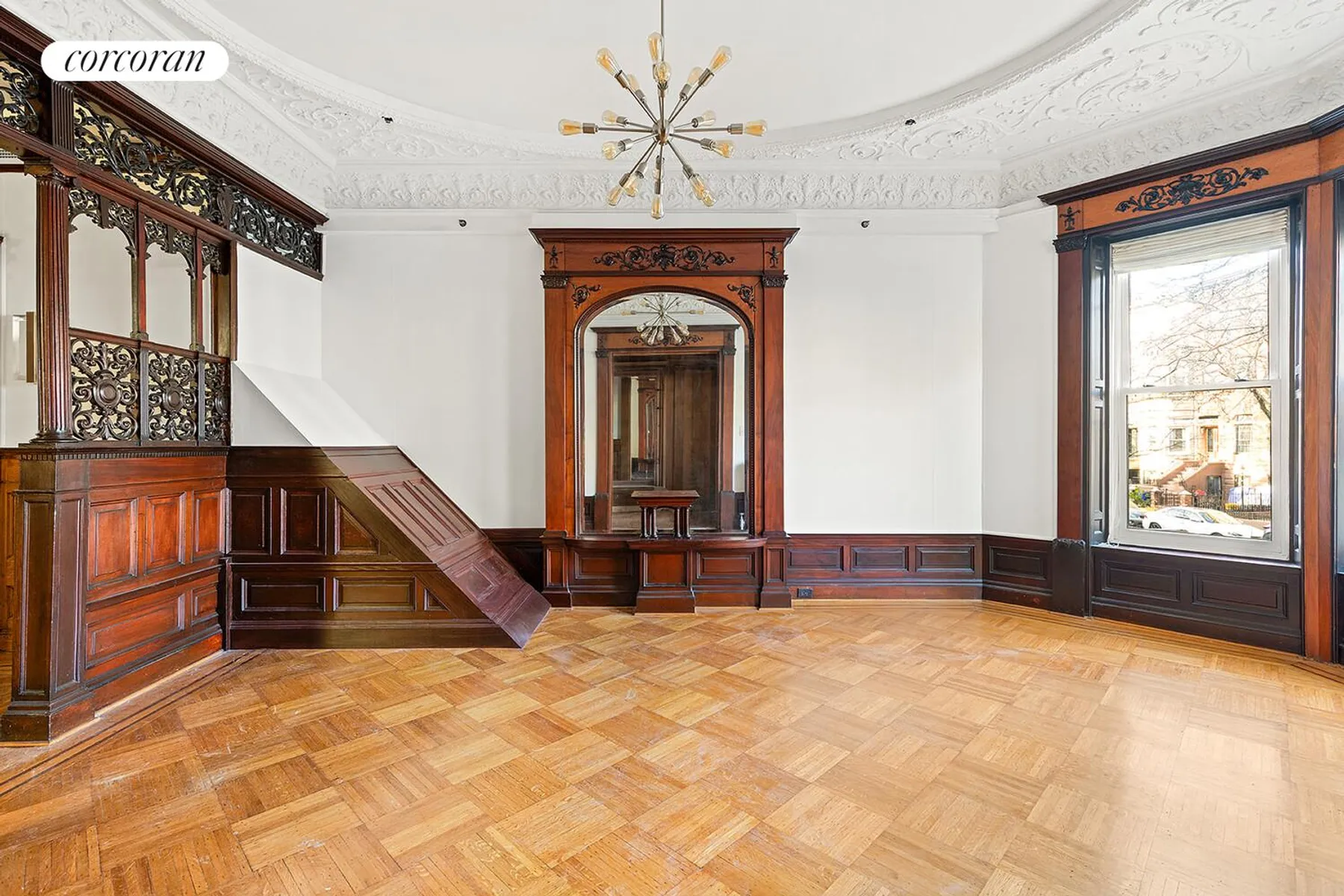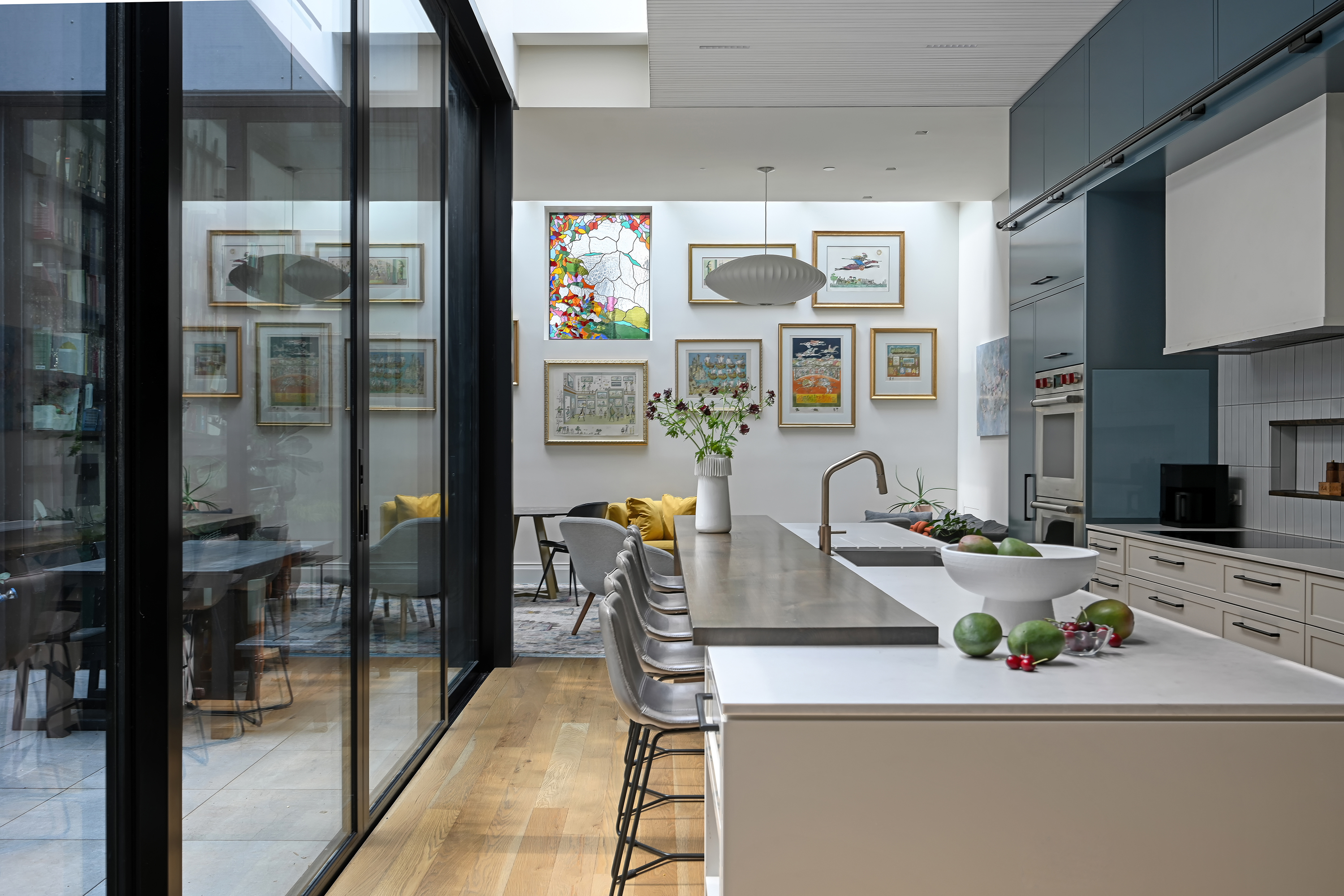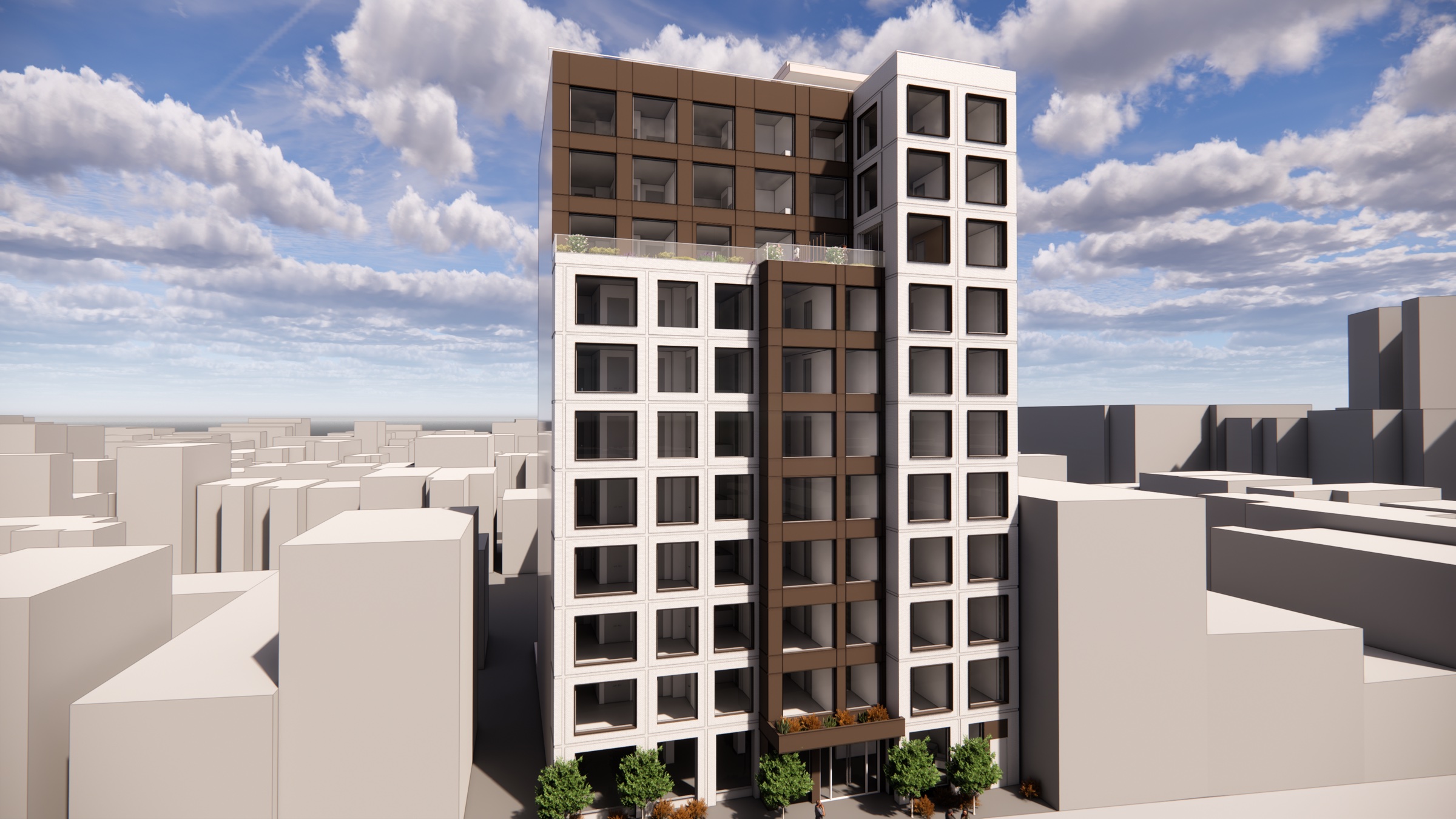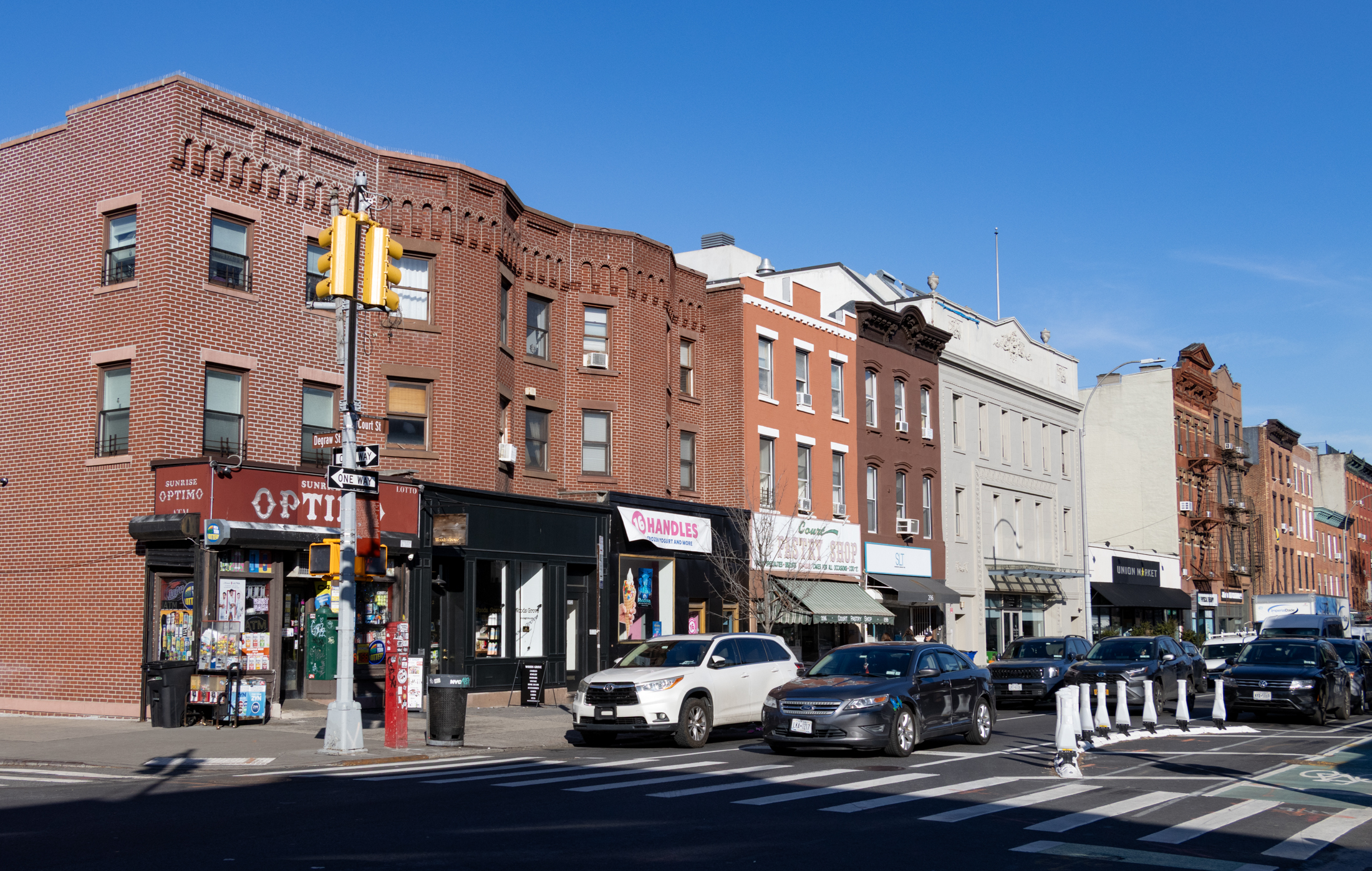Your House May Not Be Such a Great Bet After All
In this week’s New Yorker, James Surowiecki takes an axe to the myth that buying a house is always a great investment. The reliance on median home price as a barometer of the market is part of the problem. First of all, the statistic does not take into account the qualitative (e.g. central air) and…

 In this week’s New Yorker, James Surowiecki takes an axe to the myth that buying a house is always a great investment. The reliance on median home price as a barometer of the market is part of the problem. First of all, the statistic does not take into account the qualitative (e.g. central air) and quantitative (more square footage). Secondly, it ignores the corrosive effect of inflation on real returns. It also, doesn’t take into account non-financial incentives and rebates. Nor does it handle the problem of sample bias, whereby the inputs (i.e. sold homes) to the median calculation every year do not remain constant. “The idea that housing prices have nowhere to go but up is,” in Surowiecki’s words, “a statistical illusion.”
In this week’s New Yorker, James Surowiecki takes an axe to the myth that buying a house is always a great investment. The reliance on median home price as a barometer of the market is part of the problem. First of all, the statistic does not take into account the qualitative (e.g. central air) and quantitative (more square footage). Secondly, it ignores the corrosive effect of inflation on real returns. It also, doesn’t take into account non-financial incentives and rebates. Nor does it handle the problem of sample bias, whereby the inputs (i.e. sold homes) to the median calculation every year do not remain constant. “The idea that housing prices have nowhere to go but up is,” in Surowiecki’s words, “a statistical illusion.”
Safe As Houses? [New Yorker]





20 years? Please. What textbook did you get that from? Doesn’t anybody remember the last time this happened? The market started to dip in the late 80’s and the rebound started in 1992. And when it rebounded, it happened fast. I remember, I was there. It took only 5 years for the RE market to rebound that time. The only people I know who did badly at that time were flippers, and they were idiots anyway.
Renting out a dusty listing is only the beginning of a downturn in the classic real estate cycle. Auctions are also familiar indicators.
Housing is/was the economy’s largest sector. Now it’s dragging us down. Job losses are around the corner. No one would have believed that home values would triple since the mid 90’s. Now, no one believes they will split in half into the 10’s. Don’t forget to factor in inflation as it will catch up to home appreciation (a.k.a. depreciation) and surpasses it.
Historically, the period for residential real estate cycles is about 20 years. That’s an awful long time to wait for a market peak to return, IF you can. Most won’t.
Prices got away from buyers. Now they’re getting away from sellers. The next boom will be greentech IPO’s. A lot of liquidated housing cash will go there.
Hello, that’s exactly what I had posted on other threads, that I fully anticipated would happen before sellers would agree to drop the prices on their properties that much. And all sorts of wannabe buyers here, who want to believe they can buy a property next year for “half price” as a few deluded ones said, jumped all over me saying no, no that won’t happen, sellers won’t choose to rent.
Think again. We ourselves are definitely putting our property on the rental market in early 2007 if it doesn’t sell now. We can afford to wait as long as it takes for the market to come back. But we’re sure as heck not dumping it for nothing in a fire-sale, in the hottest neighborhood in one of the hottest real estate markets in the world.
At grave risk of beating a dead horse, this is what some of us were getting at yesterday. The Empty Nester move to the city–with barrels of money for that super expensive real estate–only works if they can the empty nests for a bundle.
“The Market Is Close To Becoming Illiquidâ€
Newsday reports from New York. “In January, when retired psychologists Ben Schwartz and wife, Peppi, put their Commack home of 44 years on the market for $649,000, it looked like a safe bet. ‘Houses in Commack last year were at a premium,’ Peppi Schwartz recalls. ‘We thought it would sell very quickly.’â€
“Yet, through a dispiriting spring and summer, the house didn’t move despite several price cuts. So last month, the Schwartzes chose an alternative that may be cropping up more: They decided to rent their house. They’re still hoping to sell, at $499,000, but are now concentrating on marketing the house as a rental, at $3,500 a month.â€
“‘We have to try to unburden ourselves,’ Ben Schwartz explains. With the couple now ensconsed in a two-bedroom, low-maintenance Mount Sinai ranch house, rental of the paid-off Commack property would help offset the new monthly mortgage payments. And besides, the emotional wear-and-tear of dealing with the unsold house was just too great, says Ben, who had come to think of his once-beloved Commack home as ‘an albatross around my neck.’â€
“Some Long Island real estate agents are reporting that an increasing number of would-be sellers, daunted by the cooling of the once-sizzling housing market, are offering their homes ‘for sale or rent,’ or simply for rent.â€
“The sale-to-rental approach ’seems to be a trend now,’ agrees Deborah Sande, who is marketing several of these houses. She says the sellers have come down in price, ‘but there’s a point where they want to stop. And they figure they’ll rent it and get an income from it, and when the market gets better, they’ll put it up for sale again.’â€
“In Rockville Centre, (broker) Liz Wallace says ‘the market has dipped,’ and that is especially likely to affect recent buyers who need to move. ‘if they bought in the last two years and paid top dollar, with 5 or 10 percent down, the sale price of the house in this market may not cover what they owe the bank.’ Such owners, she says, ‘would be more apt to rent’ out their house than offer a painfully low price to choosy buyers.â€
“Sheila Kassay says there’s been a change in the sort of person renting out a house. In the past, those putting homes up for rent were often investors. ‘In the last six months,’ she says, ‘we started seeing people who really had no intention of renting their home choosing to rent, because it’s sitting empty and they’re paying two mortgages.’â€
“Ilana and Stu Austin of Long Beach got caught in a two-mortgage situation some nine months ago when a house they long wanted suddenly became available. They bought it and offered for sale their home of nine years, a Spanish-style Colonial they had painstakingly restored. ‘The market was hot,’ Ilana Austin says. ‘My assumption was we would close by the end of the summer.’â€
“That didn’t happen. So the couple is offering the Colonial as a $3,000-a-month rental, preferably on a short-term basis with options to renew. ‘Our intention is still to sell it,’ she says. ‘[But] we can’t carry two houses, and the rental will help with some of the expenses.’â€
My home went up six times in value (B’stone) and I am happy 🙂
You can rent out your unit in our co-op building. What’s nice about the smaller Brooklyn brownstone co-ops is their boards are not difficult with tons of rules like the bigger buildings around Prospect Park or in Manhattan. Don’t assume certain rules exist because it’s a co-op; just go ahead and ask.
You are right, 6:33. A brownstone is great, but you are right to start with a condo if you can. You definately have more freedom that way than with a coop. All of the original buildings in the 70s and 80s were coop’d but if you can get a condo, you can sublet, which for me would be a requirement.
Disagree with 4:36 about “Coop/condo would not have much freedom.”
Yes, I own a condo and not a brownstone.
The fact that your mortgage is paid changes everything. (And congratulations by the way, With rentals and no note, you, my friend, are sittin’ mighty pretty!)
But for the rest of us new to the buying scene within the last few years, taking out a huge mortgage on a multi-family brownstone is quite a big risk, and very stressful. We could have done it, we had a huge down and reserves, we have the income, and in ’04 we checked out Harlem, Clinton Hill, Ft. Greene and South Slope and ultimately realized we were going to completely be at the mercy of our tenants to help us pay the mortgage every single month. The payment on even a basic 3-fam brownstone was going to be $7000 minimum! That’s a hell of a lot of money to be responsible for every month! and If even one tenant flaked, or worse, refused to move out after flaking for maybe as little as 3 or 4 months, we would have been in trouble. And it can be incredibly difficult to evict tenants, even when landlords have plenty of money and good lawyers.
People should realize that owning a multi-fam brownstone can be a huge liability if the tenants behave badly and/or stop paying rent. It’s happened many times before, especially when times get tough…
So I say go for that multi-fam brownstone if you want it, but be prepared to have major cash reserves to cover everyone’s rents. The bank won’t care where the problem is coming from – they are going to want your payment if you want to keep the house.
Bingo: 4:36, that about says it. Shelter with control. All of these arguments pass over those central issues – you get to live there, you make the rules (I balked at getting a coop again when I returned to NY because I couldn’t sublet it), you get the tax benefit, you own the asset with the help of tenants, you renovate it the way you want, you live with who you want. To me, no matter what kind of statistics you quote or how you analyze the whole rent buy thing, the security of knowing that this is your place, that you don’t have to be concerned about landlord renewing leases or selling the place vacant or all the things that renters have to deal with — is the primary motivation for owning a brownstone. For me anyway.